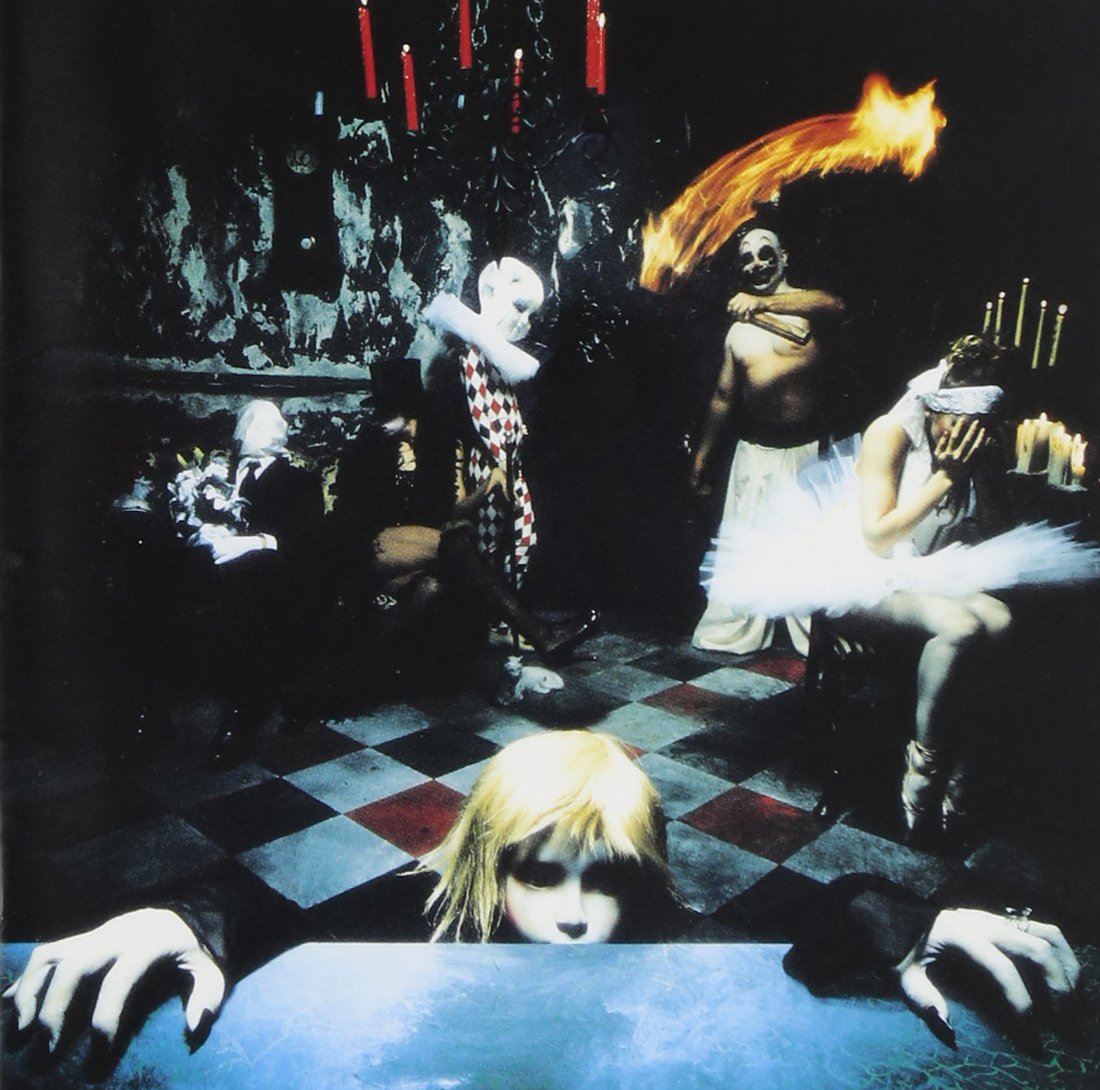Album of the Week 30-2017: Fatima Hill – Aion

Progressive metal is at its best when it is not a vehicle for virtuosity. The bands who favor atomosphere and interesting compositions instead of showing off their instrumental skills are relatively limited in number, but they exist. Fatima Hill from Japan was one of those bands. Compared to other prog bands, their songs are relatively relaxed and their riffs are relatively close to traditional heavy metal and early power metal in style, an approach that, in combination with the powerful alto of Yuko Hirose, results in quite an unusual and refreshing sound. Their sophomore album ‘Aion’ is a mystical, powerful work of art.
For those of you who have never heard of the band before: imagine the brooding heavy metal riffs of Mercyful Fate and the atmospheric blend of them being played high on the guitar neck and being backed by subtle keyboard flourishes like on Warlord’s early work. Throw in the compositional originality of early Fates Warning and Crimson Glory and you’ll get close to Fatima Hill’s core sound. The band has a tendency to throw a few curveballs at the unsuspecting listener, but they do so in a way that makes a surprising amount of sense within the context of the album.
Opening track ‘Ares Dragon’ does a pretty good job introducing that sound. The riff work is complex, but due to the relatively subdued rhythms, it never comes across as busy as many prog bands appear to be. Guitarist and main composer Anjue Yamashiro obviously wants the songs and the atmosphere to reign over the individual skills of the players and as such, ‘Aion’ is a very pleasant album to listen to. On the heavier tracks, the band sounds confident, but not overly so. The Middle-Eastern tinged ‘The Black Bat’, the dramatic ‘Ultimata’ and the relatively propulsive ‘Babel Dune’ all seamlessly blend somewhat traditional heavy metal riffing and ambitious, adventurous songwriting.
The aforementioned curveballs are ‘Other’, the almost title track ‘Aeon’ and the lengthy closer ‘The Song For Beatrice Part 3 (The Seven Songs)’. The latter sounds like it will turn into a big, bombastic prog epic, but remains rather low-key and somewhat folky throughout its nine minutes of playing time, even during its powerful finale, while featuring excellent work by Hayato Asano on the fretless bass and Yamashiro on the acoustic guitar. The folk factor is really dialled up for ‘Aeon’ by prominently featuring Yamashiro’s electric mandolin, making it sound like a mixture of Led Zeppelin’s ‘The Battle Of Evermore’ and the title track from Crimson Glory’s ‘Transcendence’. ‘Other’ is a romantic sounding, almost poppy song in which the simple, yet effective lead guitar and Takamichi Koeda’s baroque keyboards form an excellent backdrop for Hirose’s vocals.
It may take some time to fully grasp the charm of Fatima Hill’s sophomore album. I’ll freely admit that I’m still getting used to Yuko Hirose’s voice, despite her being a fantastic singer. However, due to its exceptional songwriting and pleasant nineties production, ‘Aion’ is a true winner. You have probably noticed me mentioning atmosphere a lot and the only reason for that is that it is an indispensible part of the album’s charm. Yamashiro deserves all the praise he can get for setting all egos aside and letting the songs take center stage. Whenever he does choose to play a solo, it counts and adds something to the song. Fatima Hill may be a somewhat obscure band, but they deserve to find their way to a larger number of ears.
Recommended tracks: ‘Ares Dragon’, ‘Ultimata’, ‘The Song For Beatrice Part 3 (The Seven Songs)’






